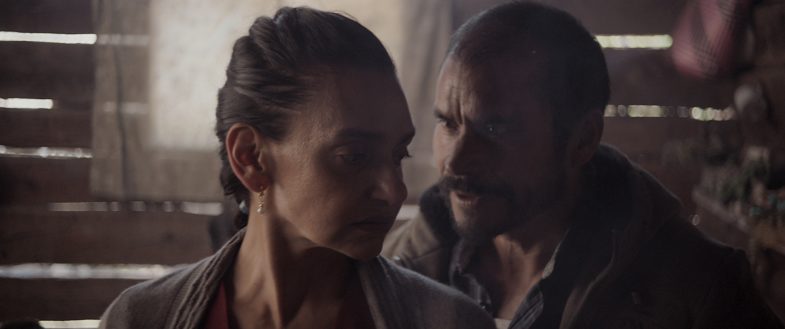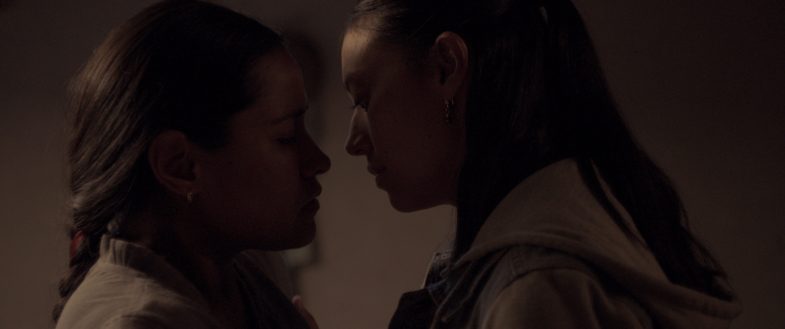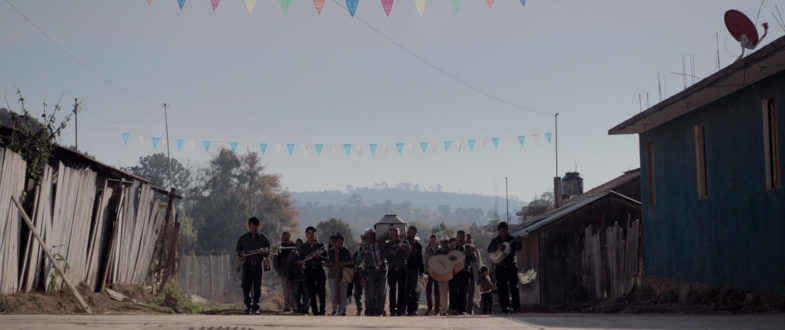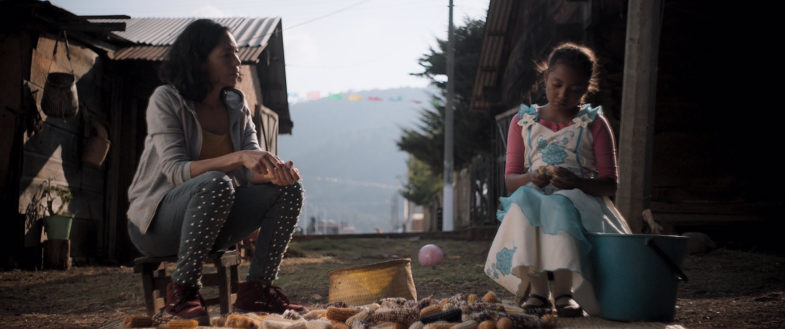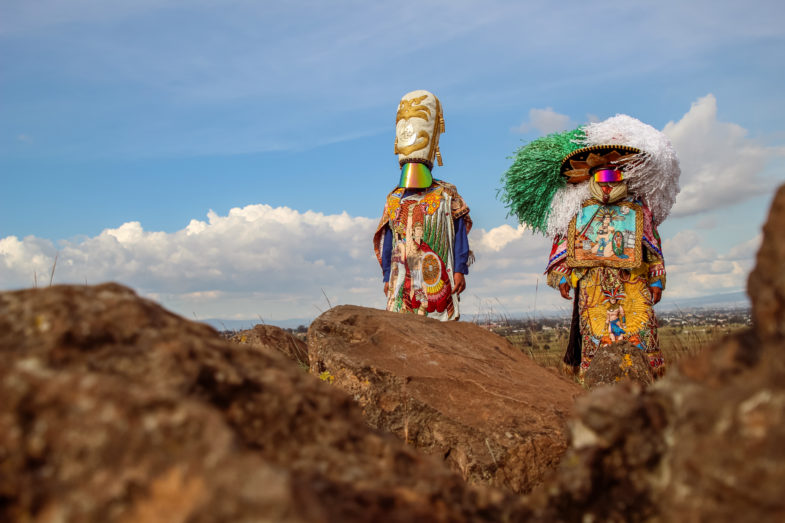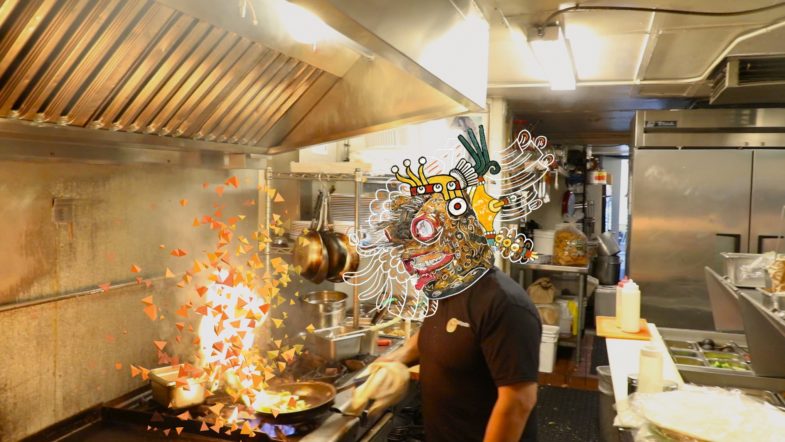Join a conversation with filmmakers, Ángeles Cruz and Federico Cuatlacuatl, whose work casts a lens on indigeneity, sexuality, immigration, and cultural sustainability. Cruz, an award-winning actress, director, and screenwriter will discuss her new feature Nudo Mixteco (2021), set in San Mateo, the Mixtec village in Oaxaca, Mexico where she grew up. The story revolves around three individuals whose lives intersect during the village’s patron saint festivities. Cuatlacuatl, Assistant Professor of Studio Art at the University of Virginia, will share work that stems from his experience growing up as an undocumented immigrant, previously holding DACA (Deferred Action for Childhood Arrivals). His multidisciplinary creative practice centers on the intersectionality of indigeneity and immigration under a pressing Anthropocene, transborder indigeneity, and migrant indigenous futurisms.
This event will be presented in Spanish with live English interpretation, and moderated by Jessica Marroquín, ACLS Emerging Voices Fellow at the University of Chicago.
Speakers
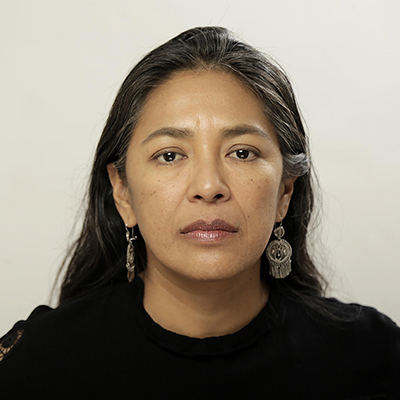
Ángeles Cruz
Ángeles Cruz is an award-winning actress, director and screenwriter based in Tlaxiaco, Oaxaca, Mexico. She has starred in films such as Betrayal by Ignacio Ortiz; La ira o el Seol by Juan Mora and El violín by Francisco Vargas. For her role in Tamara y la Catarina (2016, directed by Lucía Carreras), she won the Silver Colón for Best Performance at the Huelva Ibero-American Festival and was nominated for an Ariel Award in 2018 by the Mexican Academy of Cinematographic Arts and Sciences. Her foray into filmmaking and screenwriting was in 2012 with the short film La tiricia or How to Cure Sadness, produced by the Mexican Institute of Cinematography. The short won an Ariel Award for Best Short Film in 2013, as well as the Palmita Award from the Tour de Cine Francés. In 2013 she wrote and directed the short film La carta, also produced by the Mexican Institute of Cinematography, and received a nomination for Best Mexican Short Film at the Ariel Awards in 2015, as well as the Audience Award in Cologne, Germany and Los Angeles, California. Her third short film Arcángel (2018) received an Ariel Award for Best Short Fiction.
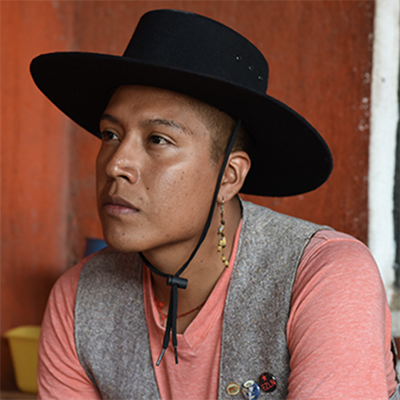
Federico Cuatlacuatl
Federico Cuatlacuatl is an Indigenous artist born in Cholula, Puebla, Mexico. He received his MFA in Digital Arts at the Bowling Green State University. Federico’s work is invested in disseminating topics of Latinx immigration, social art practice, and cultural sustainability. Building from his own experience growing up as an undocumented immigrant and previously holding DACA (Deferred Action for Childhood Arrivals), Federico’s research is primarily concerned with pressing realities in current social, political, and cultural issues that Latinx undocumented immigrants face in the U.S. Federico’s independent productions have been screened in various national and international film festivals in Mexico; USA; Canada; Finland; Athens, Greece; Delph, England; Lucknow, India; Paris, France; and the Azores Islands off of Portugal. As founder and director of the Rasquache Artist Residency in Puebla, Mexico, he actively stays involved in socially engaged works and binational endeavors.
Informed Perspectives brings together scholars, journalists, and documentarians to explore the relationship between religion, race, and politics.
Sponsored by the Luce/ACLS Program in Religion, Journalism & International Affairs.
Readings & Resources
de la Fuente, Anna Marie. “Ángeles Cruz’s Feature Debut ‘Nudo Mixteco’ World Premieres in Miami, Bows Trailer, Poster (EXCLUSIVE),” Variety, February 4, 2021. https://variety.com/2021/film/global/figa-films-trailer-poster-angeles-cruz-nudo-mixteco-1234900691/ (accessed March 19, 2021).
Hopinka, Sky, guest editor Hud Oberly. “An Indigenous Lens Is a Tool to Create Understanding,” Soundboard, March 14, 2019. https://walkerart.org/magazine/soundboard-indigenous-lens-sky-hopinka (accessed March 19, 2021).
Kelly, John. “Federico Cuatlacuatl and Revisiting His Roots Through Rasquache,” UVA Arts Magazine, Vol. 10, Summer 2019. https://magazine.arts.virginia.edu/stories/federico-cuatlacuatl-and-revisiting-his-roots-through-rasquache (accessed March 19, 2021).
National Film Board of Canada. “Indigenous Cinema: Discover the NFB’s rich online collection of Indigenous-made films.” nfb.ca. https://www.nfb.ca/indigenous-cinema/?&film_lang=en&sort=year:desc,title&year=1917..2021 (accessed March 19, 2021).
Vassar, Shea. “5 films to Indigenize your watch-at-home movie list,” High Country News, May 12, 2020. https://www.hcn.org/articles/indigenous-affairs-culture-5-films-to-indigenize-your-watch-at-home-movie-list (accessed March 19, 2021).
Sundance Institute. “4 Indigenous-Made Films Premiering at the 2021 Sundance Film Festival.” sundance.org. https://www.sundance.org/blogs/festival/indigenous-made-films-2021-festival (accessed March 19, 2021).
Stoddard, Jeremy, Alan Marcus, and David Hicks. “The Burden of Historical Representation: The Case of/for Indigenous Film,” The History Teacher, Vol. 48, No. 1 (November 2014): 9–36. https://www.jstor.org/stable/43264376 (accessed March 19, 2021).


